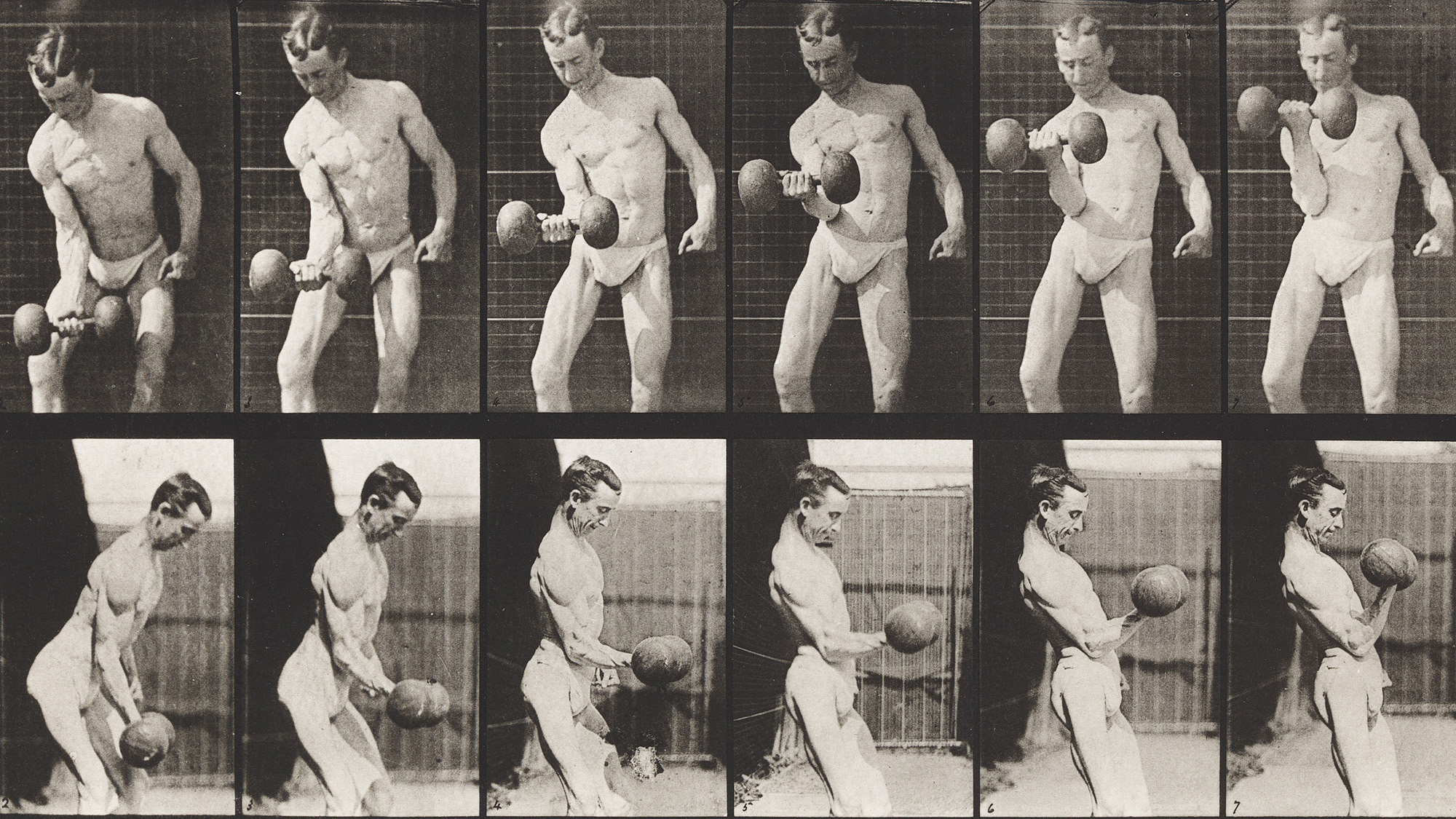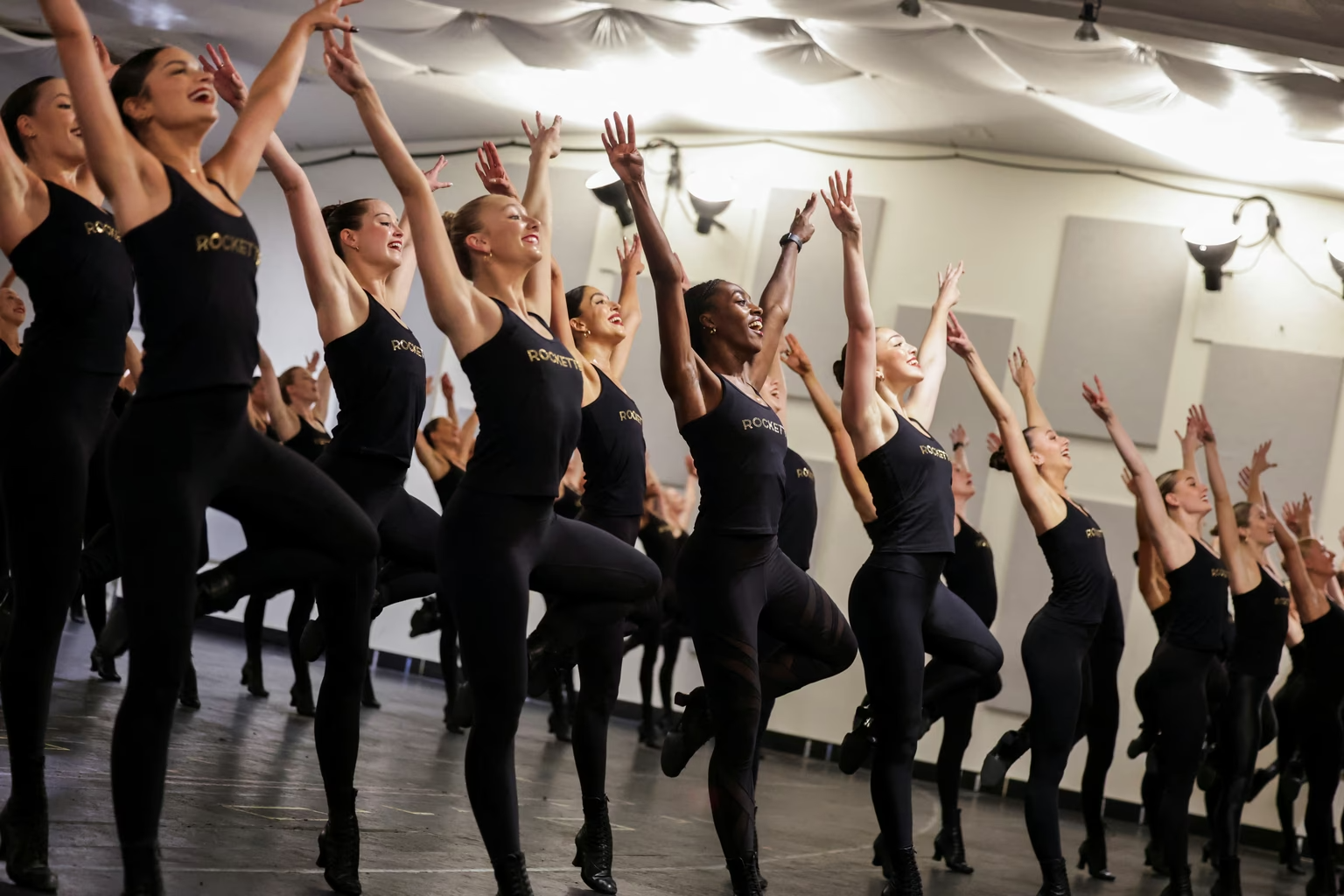This is an edition of The Atlantic Daily, a newsletter that guides you through the biggest stories of the day, helps you discover new ideas, and recommends the best in culture. Sign up for it here.
For the better part of 15 years, my colleague Spencer Kornhaber has been working in and around music-and-film coverage at The Atlantic, performing a service that was once, if not exactly universal, at least fairly common at newspapers and alt-weeklies across the country. Now, amid the broad crisis in the journalism industry, it’s a rarity—and social-media personalities are trying to fill the gaps.
I started my career writing for music publications—Spin, Billboard, Pitchfork, and others—in part because I grew up reading them. I was never under the illusion that I’d become the next Lester Bangs, but now, as institutional support declines, I’m starting to wonder whether there will ever be another Lester Bangs. What about another Roger Ebert, Manohla Dargis, or Pauline Kael? Who’s drafting the blueprint for what cultural criticism might look like in the future? And are new modes of commentary diluting or enriching the form? In his story article published today, Spencer attempts to divine that future. He joins me in today’s The Atlantic Daily to discuss.
Will Gottsegen: What makes a critic in 2025?
Spencer Kornhaber: Criticism is something that flows out of life, processing the things that shape your world with the people around you. Criticism can be the conversation you have after the movies with your friends. And of course, that ladders up to the most rarefied and beautiful writing and journalism. But more than ever, people’s experience of the arts is being mediated by voices not from publications but from their social feeds. If you’re a critic whose primary medium is TikTok or YouTube, you’re working in formats that encourage volume. The playbook for any successful TikToker is to be posting multiple times a day. That requires you to work at a pace that is completely incompatible with doing a thought-out review. Some social-media critics manage to do a really nuanced job, but the system just isn’t set up for that.
Will: Does criticism require training, even if it’s just immersing yourself in other criticism?
Spencer: You get better the more you do it. Everyone’s a critic, but not everyone’s good at it. My writing now is better than the writing I did 15 years ago, when I embarked on this professionally. Even when I embarked on it, what I was doing was shaped by the amount of criticism I read while growing up.
Will: Sometimes it feels like the only way to make a splash as a critic is to really lean into contrarianism, or to write a pan as a way of chasing engagement. Some contemporary critics have really made their name on negativity.
Spencer: That dynamic was always there, but it’s definitely pronounced now. People are saying music criticism has gotten too soft, when from everything I can tell the music criticism that’s most rewarded in this ecosystem and that’s generating the most conversation is the pan.
But you can’t make a sustainable career out of reflexive contrarianism. And it’s really hard to lie about your opinion. People who are good contrarians are genuine cranks. A critic such as Andrea Long Chu is able to express her critiques in ways no one else can. I thank God for these people. They bring attention to the medium of criticism; they keep that tradition alive.
Will: Taylor Swift, whom you’ve written about quite a bit, is a specific case in that she’s the biggest artist on the planet, but is the frenzy of extreme reverence (even worship) from her devoted fans a preview of where criticism might be headed?
Spencer: Some people argue that Taylor Swift’s fandom and the act of criticism, or having an honest conversation about music, are completely opposed. I don’t think that’s true.
Every time Taylor Swift does something, it’s like the Super Bowl for criticism. Those are the most fun criticism weeks on the internet. Everyone brings their pen to react to this one artifact. And contrary to the belief that critics are too afraid of saying what they really think about these albums, for fear of getting yelled at by the stans, I think if you go back and you read reviews of any of her albums, you have an array of reactions. (Still, there are certain outlets or writers who seem that they’re more in the tank for her: If you really buy into the Taylor Swift project, as a critic could do in a very valid way, then you’re going to see how every album aligns with that larger mission.)
The fans are obsessed with her critical reception, and I think that Taylor Swift is very interested in her critical reputation. Early in her career, she wrote that song “Mean” seemingly as a response to the music-industry commentator Bob Lefsetz. Her project does not just depend on numbers. To me, in some weird way, Taylor Swift is helping the profession feel vital, even as her work is crowding out other topics we might want to be writing about. I think a healthier ecosystem would have more Super Bowl moments in the year, so that it’s not all on just Taylor.
Will: A music publicist once told me that putting clients on late-night talk shows was more about trying to mark personal milestones for the clients than about actually building an audience. Do these sorts of cultural institutions still matter?
Spencer: They certainly matter less than they once did, but they still do matter. The indie-rock band Geese being on Kimmel actually does bring its music to an audience that might like it but would not be finding it through either the hipsters on TikTok or through Pitchfork reviews. Once you put the band on TV, you get older music lovers who say, “Hey, he kind of sounds like Jagger.” Those things still matter.
Some cultural critics Spencer suggests you follow:
Two albums Spencer suggests you listen to this weekend:
- Ninajirachi, I Love My Computer (“Bedroom pop from someone who grew up listening to Skrillex”)
- Ryan Davis & the Roadhouse Band, New Threats From the Soul (“Spacey, epic country-folk in the tradition of Silver Jews”)
Related:
- Traditional criticism is in trouble. Here’s what’s replacing it.
- Is this the worst-ever era of American pop culture?
Here are three new stories from The Atlantic:
- George Packer: The depth of MAGA’s moral collapse
- Europe is answering Putin’s challenge.
- What won’t Congress let Trump get away with?
Today’s News
- The United States is holding prisoner two survivors of a military strike on an alleged drug-smuggling vessel in the Caribbean. This marks the first time detainees have been captured during the operations.
- Ukrainian President Volodymyr Zelensky met with President Donald Trump at the White House today. Trump expressed reluctance to provide long-range missiles to Ukraine, after his call yesterday with Russian President Vladimir Putin, and Zelensky urged Trump for U.S. support; he warned that Putin does not want peace and offered to share Ukraine’s drone-warfare advancements in exchange.
- Prince Andrew officially surrendered his royal title as the Duke of York following years of controversy over his ties to the convicted sex offender Jeffrey Epstein.
Dispatches
- The Books Briefing: Here are 65 essential children’s books that teach kids to love literature.
Explore all of our newsletters here.
Evening Read

The Cleaner Way to Get Ripped
By Yasmin Tayag
To eat 10,000 calories a day, you might try putting away a family-size box of Oreos, a box of packaged cakes, a pint of Ben & Jerry’s, takeout from Five Guys and McDonald’s, and many, many Reese’s cups—all between your regular three meals.
Dru Borden subsisted on this diet throughout his 20s and 30s. As a competitive bodybuilder—fans know him as Big Dru—he needed the calories. Since the mid–20th century, one of the core tenets of bodybuilding has stipulated that gaining muscle requires putting on weight, regardless of how. In Big Dru’s case, it worked: In early-career photos, he appears to have been cobbled together from boulders …
But these days, Big Dru and his fellow muscle-maxxing enthusiasts are embracing a new approach: moderation.
More From The Atlantic
- The end of the old Instagram
- American infrastructure is about to get even worse.
- Jonathan Chait: Why is Vance defending that racist group chat?
- Adiós, AirPods
- Trump’s dodgy plan for TikTok
Culture Break

Take a look. A scene from São Paulo Fashion Week, a 700-year-old mosque in Mali, a Radio City Rockettes rehearsal in Manhattan, and more are in The Atlantic’s photos of the week.
Explore. Coffee has almost no nutritional value and lots of substitutes, but it’s also the drink that Americans won’t give up without a fight, Ellen Cushing writes.
Rafaela Jinich contributed to this newsletter.
When you buy a book using a link in this newsletter, we receive a commission. Thank you for supporting The Atlantic.
The post The Forces Changing Music and Film Criticism appeared first on The Atlantic.




